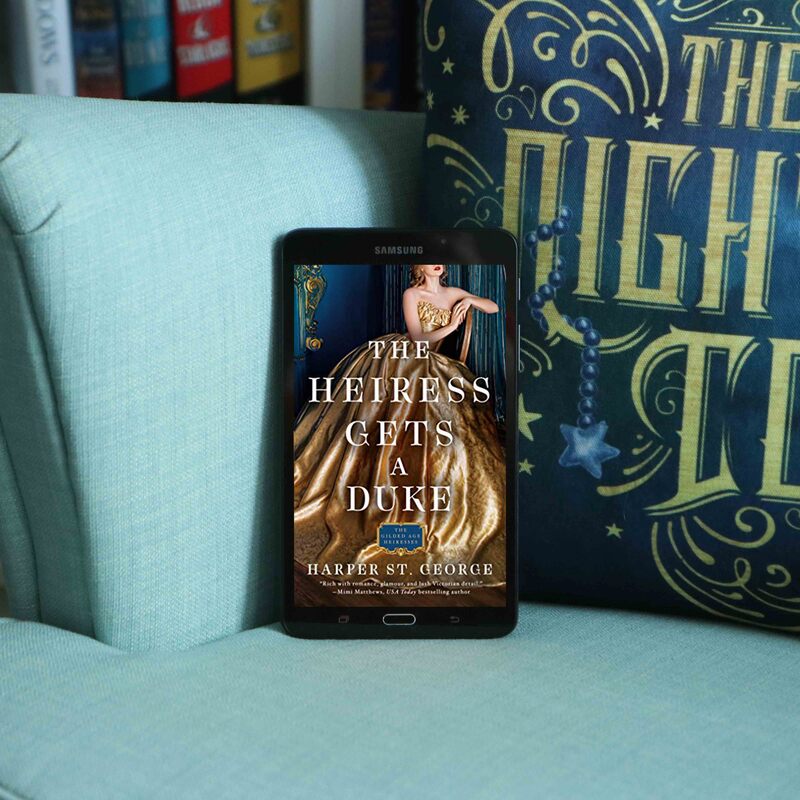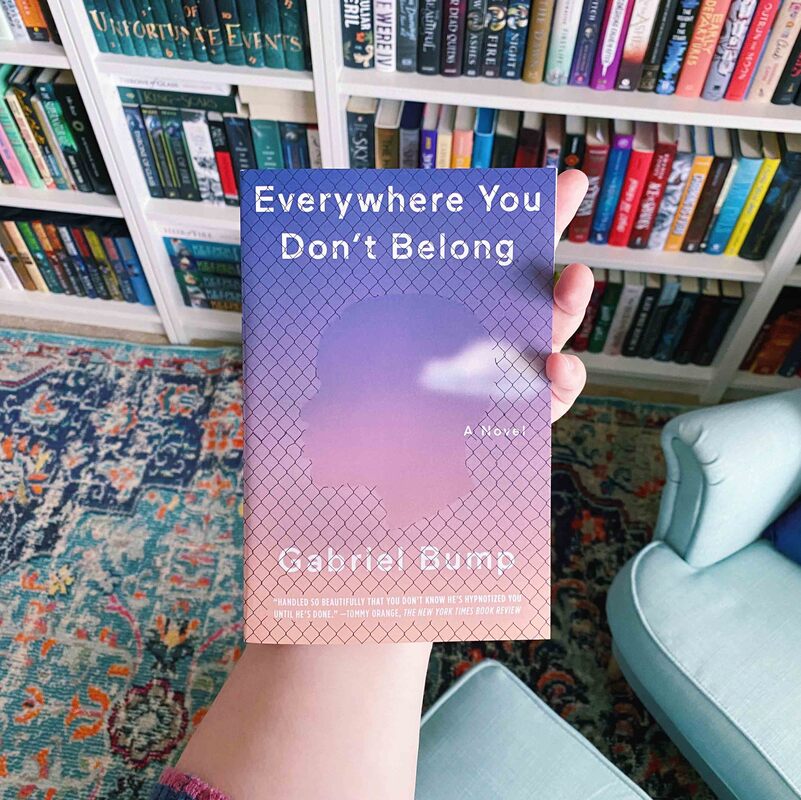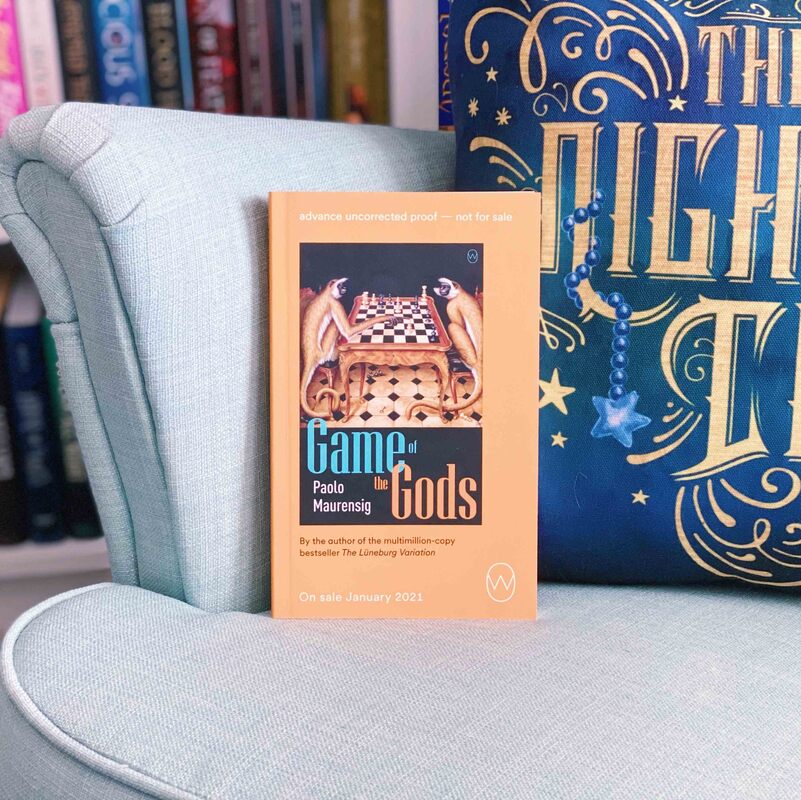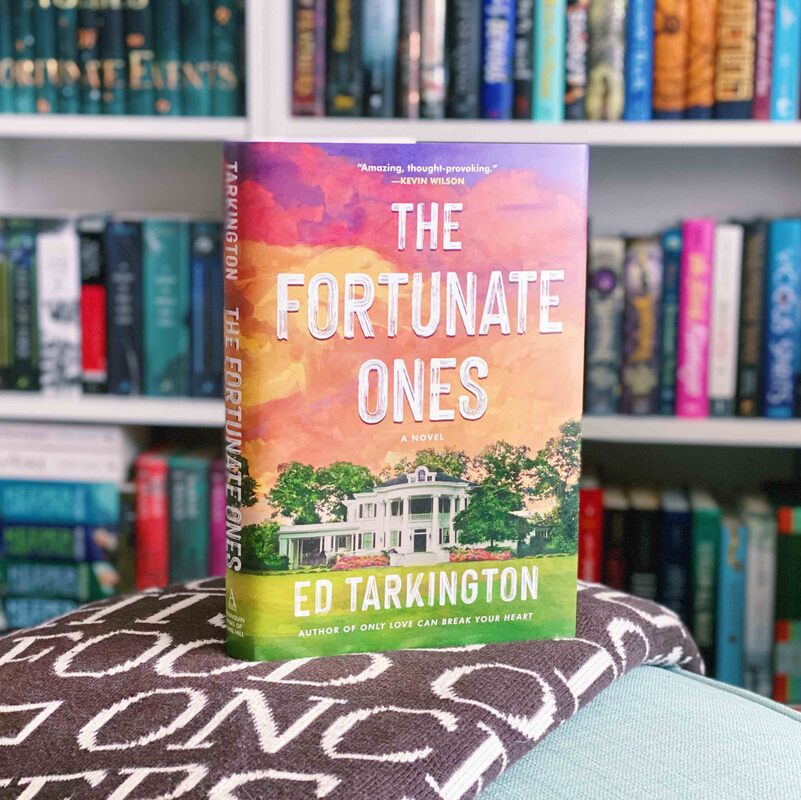|
3.5 stars, rounded up!
An American railroad heiress, an English duke in need of funds, and an arranged marriage with a lot angst and chemistry than anyone is expecting. Plot/Pacing: ★★★ Characters: ★★★★ Drama: ★★★ Enjoyment: ★★★★ August Crenshaw is the oldest daughter of an American railroad tycoon. She's got a head for figures and enough ambition to hold her own... and yet. When her parents give her and her younger sister, Violet, the ultimatum that one of them must marry a duke in England... August can't believe it. Will she have to compromise on her autonomy and freedom sooner than she planned? Evan Sterling, the Duke of Rothschild, is up to his ears debt thanks to his father. Evan never planned on being the duke of the family and he certainly never planned on having to save his family from ruin, but here he is. When the Crenshaw family shows up in England in need of a title, Evan sees a way out. But then he meets August in an underground brawl in Whitechapel and one fated kiss will forever change the outcome... As August and Evan navigate the tangled landscape of England's Society, her parents expectations, and Evan's desire to win August on his own merit and not for his title, they find they might be in for more than they bargained for. I thoroughly enjoyed this debut. It had some refreshing twists on some old tropes and I LOVED how August's fierce need for independence shown through as both a positive trait AND a negative one. I know how bizarre that sounds, but hear me out—she's stubborn to the point of ignoring her own desires and the facts around her, and to be honest that bites her in the butt. I liked the realism of that, and how it made her character more human and less "perfect protagonist." There's also the perfect set up for the next novel, of course, with August's younger sister Violet in need of a duke of her own... Looking forward to reading that one too! Thank you to Berkley for my copy in exchange for an honest review.
0 Comments
4 stars
Ever read a book with such hypnotic writing that you lose all sense of place and time? Welcome to the words of Everywhere You Don't Belong. Writing: ★★★★★ Characters: ★★★★ Plot/Pacing: ★★★★ Claude McKay Love is just trying to live and thrive in life. Born and raised as a Black man on the South Side of Chicago, Claude's lot is already complex and complicated. It's made even more so with the introduction of riots around his home and the situation of his area. His grandmother, a product of the civil rights era, pushes Claude toward change, and his family members, neighbors, and others in his community push to make him act one way or the other. But Claude is just trying to live. As we stride hand-in-hand with Claude through his childhood years and into adulthood, we have a front-row seat to his struggles to identify as a member of the Black community while also hesitant to put himself out there. He tries to leave his past and place in society behind him by leaving the South Side, attending college, and reinventing himself... but that only works well for a hot second, because as the saying goes, "you take yourself with you, wherever you go" and it's hard to outrun the fact that he's Black in America today. And at the end of the day, does Claude even want to outrun himself? With poignancy, pain, violence, and heartbreak, Everywhere You Don't Belong sounds like the opposite of a funny, heartwarming read. And yet author Gabriel Bump manages to make you laugh and smile along with Claude. It's in the writing. Bump has done something special with this debut... it sings. I strongly encourage all to read this not only for the poignant commentary but also for its shining example of endurance and light. A powerful book, and an author with writing to watch. Thank you to Algonquin Books for my copy in exchange for an honest review. 4 stars
Inspired by the true story of Indian chess champion Malik Mir Sultan Khan in the early 1900s, Game of the Gods is a transporting work that spans the farming country of India to England's elite to New York's bustling streets. Plot structure: ★★★ Character's voice: ★★★★★ Enjoyment: ★★★★ In 1930s British India, a young Malik wants to learn how to play chaturanga, an Eastern ancestor to chess with deeps ties to myth, faith, and enlightenment. Malik meets the wealthy Indian landowner who oversees his small rural village and shares his dream—and to his shock, the landowner takes him back to his palace and grooms him for the game. Over the years as young Malik grows in talent, he becomes a bauble to his patron, and his patron sees an opportunity: Malik can beat Westerners at the modern game of chess, too. Soon, Malik finds himself in England and competing against the white elite. Malik always wins. And in the 1930s, his Indian ancestry does not endear him to the British public. Game of the Gods follows Malik throughout his entire lifespan as we watch his humble beginnings turn into lush winnings and then to mysterious World War II side rooms and finally to a scandalous murder in New York City. A surprisingly passive participant in his own life, Malik's adventures come to him like wafts of air, taking him from place to place. Italian author Paulo Maurensig used the real-life inspiration of Malik Mir Sultan Khan for Game of the Gods, but he is clear to point out in his forward that there are embellishments to the story. It was relatively easy to tell what was most likely fiction... but that did not stop me from enjoying the tale at all. This was mesmerizing. I enjoyed Malik's story and found myself extremely invested in how his life would turn out—which was truly something, as right at the beginning of Game of the Gods we are introduced to Malik at the end of his life. So from the top, we know how the story must end. But I still found myself cheering for him at every step. Fantastic story, beautifully told. Recommended for all fans of the era, chess or strategy games, and good storytelling. Thank you to World Editions for my copy in exchange for an honest review. 4.5 stars
A Southern exposé in a certain way, with grace and pain wrapped between frankly beautiful written pages. I was not expecting to love this story of a white man in the South, but there are some kernels here and no one was more surprised to find them than me. Characters: ★★★★ 1/2 Writing: ★★★★★ Pacing: ★★★★★ For those who know me here on Goodreads and in the book community, you might be thinking this really isn't my type of read. (You're totally right) A book written by a white dude, about a white dude in Nashville, Tennessee, with lots of white privilege and classism?? Amy, come on. Well I had to eat my hat with this one, folks, because this was stunning. Beautifully written, poignantly described, and filled with an unbelievably delicate balance of self-awareness and reflection on the hypocrisy and decay of the Southern white elite, The Fortunate Ones is a read that will no doubt be a focus of discussion in 2021. Charlie Boykin grows up in a poorer part of Nashville with his single mother, Bonnie. Bonnie got pregnant at 15 and was thrown out of her rich family's house and told never to return. Charlie never knows anything different—his Aunt Sunny is a bar singer, his mother is a cocktail waitress at a bar nicknamed The Divorcee, and his best friend, Terrence, is a Black kid with a lot of heart who looks out for Charlie. Then Charlie's life dramatically changes in high school. His mother has managed to snag him a need-based scholarship to Yeatman, an all-boy prep school known for housing Nashville's elite children with ties to old money and the Old South. Charlie has no idea what he's in for. In a move that should feel derivative of The Great Gatsby but manages to stand alone and supersede it, Charlie's life as the "outsider" passes as he reflects on, admires, craves, and worms his way into the glamorous and decaying life of Nashville's rich. His tie to his close friend and occasional secret lover, Archer Creigh, becomes one of unbalanced love and manipulation as Charlie falls deeper and deeper into a world that he's aware is wrong, racist, and fueled by the pain of the lower classes—and yet the lure of the glitz is too much for him to ignore. Spanning decades and locations, The Fortunate Ones feels like an epic wrapped in a mere 300 pages. Charlie is—surprisingly, for me as a woman from a lower middle class background—a likeable narrator to follow. He's both aware of his privilege and yet aware enough of his ignorance to own up to his blindness in certain arenas. The people of color in this novel are marginalized and relegated to stereotypical Southern roles, and we as readers are uncomfortably aware of that boundary line even as young Charlie and old Charlie miss most of it. The women of this novel are trapped in the gossamer cage of the trophy, the accessory, the beautiful—and while Charlie catches some of that and misses most of it, Tarkington's skill as an author highlights it for us despite his own narrator's ignorance. I found that extremely well done. Another element to this story was its fringe revelations in the handling of its gay and lesbian characters. In a society where sexuality is strictly forced into a heteronormative binary, Tarkington's way of highlighting that rot and hypocrisy by having Archer's sexuality bleed through the edges of the page was fascinating, along with Charlie's interactions with a mentor figure who exists as a lesbian amongst this world of "good old boys." I really can't talk about this element without spoilers, but wanted to highlight that it's here for those who would automatically dismiss the story as not including that element. (I totally did that, honestly, so I'm raising my own hand.) What a beautiful, lingering piece of fiction. Thank you to Algonquin Books for my copy in exchange for an honest review. |
Amy Imogene ReadsJust someone looking for her own door into Wonderland. Categories
All
Archives
July 2024
|





 RSS Feed
RSS Feed
